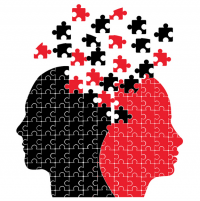If you ask any senior teacher they will invariably tell you that there are more children today with learning and behavioural difficulties than there were 35 years ago. In those days there would be one or two children who stood out in the classroom of 30 children. Today it is common to find up to 5-10 children in a class of 30 with some form of mild to moderate learning difficulty.
Every parent who has ever delivered their child to school on their very first day at the tender age of 5 years will recall the myriad of emotions which flooded their parental being at that moment:
- excitement that the big day has finally arrived,
- pride at how mature and excited your child is at reaching this important milestone,
- relief at being able to finally deliver your school-ready child to the door and into the teacher’s hands,
- sadness as he walks away from you without a second glance, and
- perhaps some apprehension or even fear for your little one as he takes his first steps out into the great big world without you.
This will depend to a large degree on your own educational experience as a child. However if you have taken all the reasonable steps to prepare your child socially for this great transition in his life, with regular attendance at play centre or kindergarten, your fears will for the most part be unfounded. Your child will be off and away on the most exciting adventure of his young life. He will return home at the end of his school day tired but happy, full of stories of new people and experiences and will awaken the next morning bright eyed and bushy tailed ready to go back for more.
ADHD and Autism: What Do These Learning Difficulties Have In Common?

What do ADHD and Autism have in common?
Of all the learning difficulties, ADHD(Attention- Deficit/ Hyperactivity Disorder) and Autistic Spectrum Disorders (ASD) are the two of the most challenging for teachers to manage in the classroom. Children with symptoms of ADHD are disruptive in the classroom with their excessive need to move (hyperactivity), to act without thinking(impulsivity) and their tendency to quickly lose attention for the task at hand (inattention).They are poor listeners and quickly forget what they have just heard.
Listening Therapy Research Studies: Notable Research Studies Using Integrated Listening Systems Programme

Below are some of the notable research studies using an Integrated Listening Systems Programme (iLs) to treat auditory processing disorders. It is important to note that the “Tomatis Method”, as mentioned in some of the studies below, refers to a method of auditory stimulation developed by Dr. Alfred Tomatis. iLs professional training and clinical studies continue in the same vein as Tomatis. iLs is a further refinement of the DLS programme mentioned below in that it includes motor stimulation.

